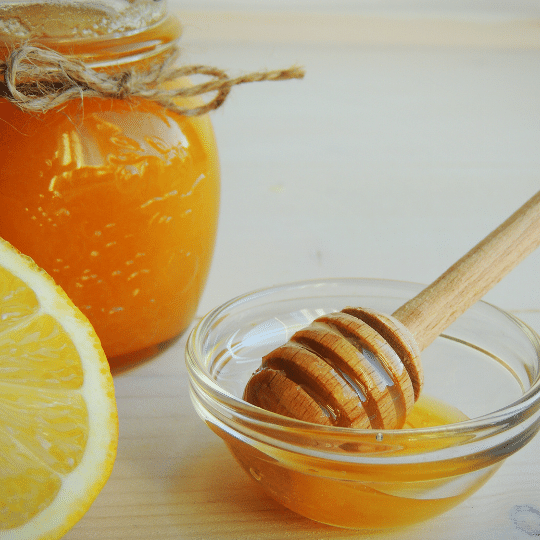
It is that time of year when cars are covered with a thin yellow dusting of pollen as susceptible families replenish their tissue supply and look for ways to manage their unrelenting symptoms of allergies. With a seasonal flock to the pharmacy, the over the counter options seem endless and contain a laundry list of negative side effects. Local honey, infused with cannabis, may be the best answer to naturally manage nasal inflammation. As bees buzz busily visiting flower after flower, they accumulate pollen and transfer the spores into honey. Consuming raw, regional honey exposes your body to allergens found within the local environment, acting almost like a vaccine.
One randomized control study analyzed the ingestion of raw honey for the treatment of allergic rhinitis – the inflammation and swelling of the mucous membrane inside the nasal cavity. Ingesting high doses of unprocessed honey improved the overall symptoms of allergic rhinitis in its patients and reduced symptoms such as runny nose, sneezing and nasal congestion. However, additional research is needed to evaluate extra variables such as other species of pollen (tree, wheat, and grass) that are less abundant in honey.
Infusing raw wildflower honey with cannabis may improve seasonal allergy flareups lessening nasal inflammation. Phytocannabinoids, found in cannabis, bind with our Endocannabinoid system targeting receptors to activate biological processes for improved systemic homeostasis. CB1 receptors are primarily expressed in the brain and are one of the most common receptors in the nervous system where as CB2 receptors are expressed by the cells of the immune system to moderate inflammation and our immune response to pathogens.
One study focused on the anti-inflammatory properties of the cannabis compound Cannabidiol (CBD). The CBD treatment reduced lung inflammation, clearing the airways, by binding to CB2 receptors. CBD may be an anti-inflammatory therapeutic treatment against allergic rhinitis as it contains broad anti-inflammatory properties and provides a favorable safety profile with little to no side effects. A separate study examined the anti-inflammatory properties of the most abundant cannabinoid compound, comparative to CBD, Tetrahydrocannabinolic Acid (THCA) – the raw, unheated form of cannabis. THCA and CBD were prepared both fresh and decarboxylated, finding THCA has 10x more anti-inflammatory properties than activated CBD.
The two cannabinoids, CBD and THCA, both reduce inflammation while minimizing the psychoactive “high” side effect. Infusing these compounds, collectively or individually, into local raw wildflower honey may be the perfect pairing to combat and reduce inflammation from seasonal allergies. Infused honey is not only delicious, but versatile as it can be added to morning coffee, tea or combined with pure lemon juice to make a Vitamin C rich throat soother. (See ACS’s infused honey recipe below). With little to no side effects, taking a daily dose of cannabis infused local honey may be the preferred, natural option to suppress immune activation by inhibiting and reducing allergic rhinitis from seasonal allergies. *Please note: this information is not intended to replace consultation between a patient and their medical provider.
Infused Local Honey Recipe
Ingredients
- 1 to 2 grams* of RSO – works with CBD, THC, and 1:1 options (*change quantity according to your preferred dose per serving – see dosage details below)
- 2 Tablespoons of refined coconut oil
- 12 ounce jar of local, raw wildflower honey
Directions
- In a 16 ounce mason jar combine all ingredients and screw the lid on tightly.
- Place the glass jar in a large pot filled with water so the jar is completely submerged.
- Simmer on medium heat for 15 minutes.
- Remove from the water, uncover the jar, and let it cool slightly.
- Pour the warmed honey into a blender and blend until it becomes an opaque yellow.
- Pour the honey back into the jar and allow it to cool completely before using.
- Enjoy in coffee, tea, on toast, in recipes, or as is.
Dosage
Know your dose when you cook and reduce the quantity of RSO used in recipes for a dose to match your comfort level. Testing results vary based on RSO batch. THC, 1:1, 3:1, and CBD RSO options are available at ACS. Always check your testing labels for cannabinoid percentages.
*Note – Convert the THC% to milligrams (mg) and divide by the amount of recipe servings.
(THC% ÷ 100) x 1000mg = mg of THC
(mg of THC) ÷ (# of servings) = mg of THC per serving
